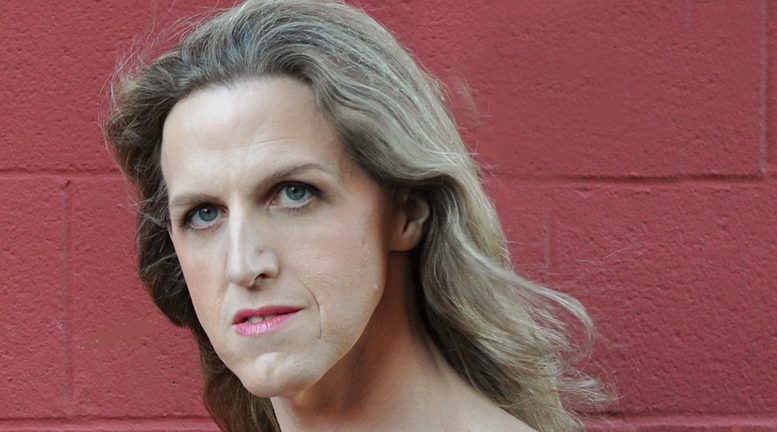Often confused, sex and gender are explained
By: Lorelei Erisis*/TRT Columnist —
Dear Trans Woman,
I have some confusion you may need to school me on, because it still doesn’t register. Is it true people can choose their gender because it’s a social thing? But “sex” actually deals with biology? Right? Wrong? What’s the difference?
Help! I know it’s a touchy subject I didn’t wanna offend anyone, but would you care to clarify or verify?
I saw this last night and have had this tumbling around in my head ever since. It’s one of those, “more complicated than you expect/simpler than you realize” things. And, forgive me dear readers if I’m restating, rephrasing, or repeating anything that’s you’ve heard already. But it’s important to get back to the basics sometimes.
First of all, let’s start with the idea that sex and gender are two entirely separate things. The main reason most folks don’t get this is that they happen to be things that line up enough of the time that generally people have little cause to question it. But it’s a false correlation. Here’s what you need to know and keep repeating, “sex” and “gender” are different things and refer to somewhat different ideas, though the lines between them are often blurry and hard to separate.
“Sex” generally refers to the observable biological characteristics of a species, particularly in regards to reproduction. This may seem simple enough. But, what is “observable” is not always easy to observe. For instance, possession of a vagina does not necessarily mean a person has a uterus or ovaries or is capable of reproduction as a female. It doesn’t even mean a person has XX chromosomes. Similarly possession of a penis isn’t a reliable indicator of sperm, reproductive capability, or XY chromosomes.
And I’m talking about AFAB (Assigned Female At Birth) and AMAB (Assigned Male At Birth) people, never mind transgender folks. And when you add intersex people into the mix, there isn’t even a reliable or easily identifiable binary when referring to “biological sex.”
So then we have “gender,” which is often thought of by the kind of people who think about such things as being a “social construct.” I mean, we have a generally agreed upon idea of what constitutes a “man” and what constitutes a “woman” and how those roles are identified.
Except, you guessed it, those social constructs kinda fall apart pretty easily too. For one thing, ideas change and are changing all the time. What we think of as a man or a woman is pretty completely different today than it was 50, 100 or 1,000 years ago. Culture is not static.
Anyone who has spent any time on Tumblr at all will tell you that “culture” and “society” are hardly singular. This world holds a dazzling array of different cultures all with their own unique ideas about social structure and interaction. So, what we generally refer to as a “woman” or a “man” is really only the general social constructs recognized by “Western” (by which I mean “European,” and I am also implying “colonialist”) society. And even at that, it’s hardly consistent with biological sex. People have been identifying and living as gender identities that differ from the sex they were assigned at birth for quite some centuries (probably millennia) before we invented the word “transgender.” And that’s only in “Western” society!
Many other cultures and societies break things down in ways that would be practically unrecognizable to our “Western”-indoctrinated ideas. Heck, a lot of them don’t even think of gender as a binary! If you want some additional info on this, here’s a simple list I put together years ago of third gender and gender variant groups in various cultures and time-periods around the world.
So, to bring this all home and back to the statement, “not all men have a penis or XY chromosomes” and “not all women have a vagina or XX chromosomes.”
Speaking as a trans woman and a newspaper columnist who has a vested interest both personally and professionally in the hows and whys of gender and why we identify as we do, I can tell you that there are lots of scientific, medical, and social theories as to why someone identifies as a “man” or a “woman” or as neither/any of those options. There are new studies, new theories, all the time. Some are pretty interesting, quite possible even. But ultimately, we have no real strong or immutable grasp on exactly what makes anyone a man, woman, or other. Not biologically. Not socially.
The best we have is that people seem to know, inherently and often quite strongly, what their gender actually is. Ask any trans person. We know, for sure, who we are and how we identify. Trans kids will tell you even more clearly.
Heck, for that matter, ask a cisgender person what their gender is. Then ask them, really, how they know beyond what they have in their underwear or what anyone told them they are. Trust me; it’s an interesting experiment to flip these same questions people are always asking trans people.
Most likely, they’ll tell you they, “just know.” And they’ll be right. When it comes right down to it, the most reliable indicator that someone is a woman, a man, or entirely other is that we “just know.”
And it really makes very little difference what we have under our skirt or in our genes.
I know it seems complicated. It is. Gods know sometimes thinking and writing about this stuff makes me badly want a drink. But the world is complicated! Logically it follows; so are we! And after all, that’s really kind of wonderful!
Slàinte!
*Lorelei Erisis is an actor, activist, adventurer and pageant queen. Send your questions about trans issues, gender and sexuality to her at: askatranswoman@gmail.com.







